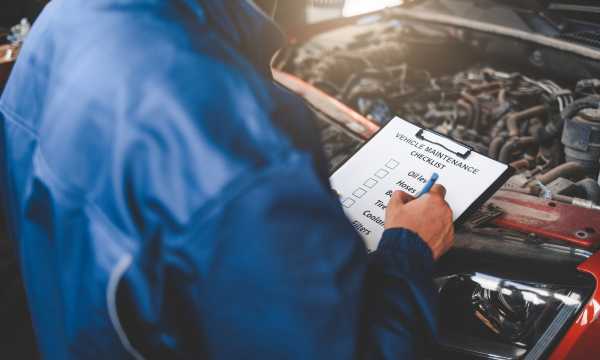Seasonal Car Maintenance Tips for Year-Round Performance
Maintaining your car is important to ensure that it lasts as long as possible, remains safe and functions optimally.
However, as the seasons change, the care your car needs can change significantly. From hot summer days to icy winter roads, every season brings its own problems for your car. By adjusting the maintenance of your car to the seasons, you can prevent breakdowns and expensive repairs. Here are some important seasonal car maintenance tips to keep your car running smoothly all year round.
Spring: Refresh and Renew
Now that the snow has stopped and the weather has warmed up, it’s time to hit the road again. The main purpose of spring maintenance is to get your car ready for more driving once the weather improves and winter is over.
- Check Your Tyres: Winter can be tough on tires, so keep them under control. Check them for damage and make sure the air pressure is at the correct level. If you can, consider switching from winter tires to all-season or summer tires.
- Check Your Brakes: Salt and dirt on winter roads can reduce braking performance. Check the brake disc and brake pads for wear and repair if necessary.
- Clean Your Car Thoroughly: The build-up of dirt and salt can cause rust. Extensive cleaning, including wheels and axles, can prevent damage.
- Buy New Windshield Blades: Your wiper blades can become worn out from snow and ice throughout the winter. It is best to buy new ones in the spring so that you can clearly see when it rains.
- Check the Fluids: Make sure all fluids have the correct contents. This includes engine oil, coolant, brake fluid and windshield washer fluid. If not, add more liquid.
Summer: Keep Cool
The heat of summer can take just as much of a toll on your car as the cold of winter. Because high temperatures can put stress on your car, summer care focuses on keeping your car cool and preventing overheating.
- Test Your Air Conditioner: Make sure your car’s air conditioner is working properly during the hottest parts of the summer. If the battery is not as hot as it should, it may need to be repaired or charged.
- Check the Cooling System: It prevents your engine from overheating. Check the coolant level and the radiator and hoses for damage. If the system has not been cleaned and refilled in a while, you can do so now.
- Protect the Exterior and Interior of Your Car: To protect your dashboard from UV rays, use a sunscreen; to protect the paint from the sun, you may need a protective wax.
- Keep An Eye on the Tire Pressure: When it’s hot outside, the air in your tires expands, causing the pressure to change. Check your tire pressure regularly and change it if necessary to prevent blowouts.
Fall: Prepare for the Cold
In the fall you need to prepare your car for winter. During fall maintenance, you want to be sure that your car can handle the colder weather and the coming winter.
- Check the Power Supply: When it’s cold outside, your car’s battery can drain quickly. Check if the battery can hold a charge. If it is almost empty, buy a new one.
- Get Ready to Drive in Winter: If you live somewhere with severe winters, you may want to switch to winter tires for better grip. Also make sure you have an emergency kit in your car with blankets, flashlights and other important items.
- Inspect heating and defrosting systems: Make sure the heating and defrosting in your car are working properly to keep you warm and in good visibility.
- Check the Lights: As the days get shorter, you’ll need to use your headlights more often. Check that all lamps are working and replace burned out lamps.
Winter: How to Deal with the Cold
Winter is the most difficult time for your car because of the cold and ice. During the winter it is important to perform maintenance to ensure that your equipment remains safe and functioning properly.
- Use Winter Fluid: To prevent engine ice, switch to winter coolant and windshield washer fluid.
- Make Sure Your Gas Tank is Full: A full tank of gas prevents fuel lines from freezing and gives you enough gas to keep your engine running when the going gets tough.
- Keep Your Vision Clear: Check and clean your headlights, taillights and windshield regularly to ensure that you and others can see clearly.
- Check the Exhaust System: Snow and ice can build up and prevent your car from ventilating. Check for leaks. Carbon monoxide can build up in your car and can be dangerous if your exhaust pipe is clogged or leaking.
Conclusion:
A safe and economical car requires maintenance all year round. By using these seasonal car maintenance tips, you can ensure your car runs optimally all year round, regardless of the weather conditions. Remember that preventive care is always cheaper than restorative care. Taking the time for car maintenance can save you money and stress in the long run.
FAQs:
1. Why is seasonal tyre rotation important?
Seasonal tyre replacement is necessary because different tyres perform best in different weather conditions. Winter tyres contain a unique tread pattern and rubber compound that provide better grip, handling and braking. Summer tyres work well in warm weather on both dry and wet roads. Using seasonally appropriate tyres can improve the safety and performance of your vehicle.
2. How often should I check my car’s fluids?
Once a month and before a long trip, you should check your car’s engine oil, coolant, brake fluid and windscreen washer fluid. The start of each season is a good reminder to perform maintenance and prepare your car for the changing weather.
3. Will hot weather damage your car battery?
High temperatures can damage your car’s battery. When battery fluid evaporates at high temperatures, the terminals and connections can corrode. Heat increases the battery’s chemical processes, causing overcharging and shortening its lifespan. Summer is the time to check your batteries and charging systems.
4. Why use winter fluid?
Winter fluids work better in cold weather. Winter windscreen washer fluid contains antifreeze to prevent the windscreen or fluid reservoir from freezing. To prevent your engine’s cooling system from freezing in cold weather, you need antifreeze. These fluids help your car run safely and efficiently during the winter months.
5. How do I maintain visibility in the winter?
For visibility in winter, the windscreens, headlights and taillights should be cleaned regularly to remove salt and dirt. Use winter-grade windscreen washer fluid, replace worn wiper blades with winter-specific wiper blades, and make sure your heater and defrost are working properly to keep your windscreen clean. These precautions are essential for winter driving safety.
 Car Maintenance Tips
Car Maintenance Tips
Discover essential car maintenance tips to keep your vehicle running smoothly and efficiently. 1. Introduction Regular car […]
More Top 5 Essential Car Maintenance Tasks Every Beginner Should Know
Top 5 Essential Car Maintenance Tasks Every Beginner Should Know
For beginners, it can be difficult to find your way around the field of car repair. That […]
More 10 Money-Saving DIY Car Maintenance Tips
10 Money-Saving DIY Car Maintenance Tips
Car maintenance can cost a lot of money, but there are many ways to save money without […]
More